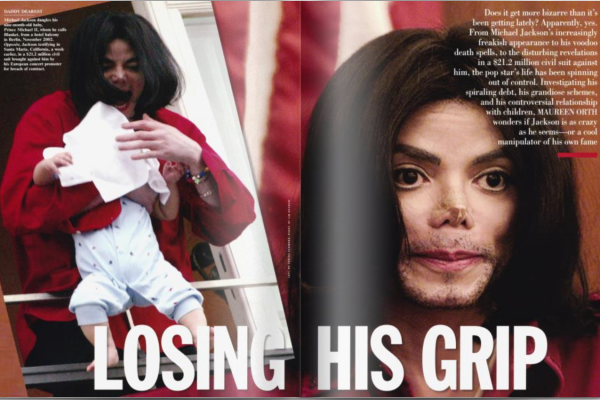Original Publication: Newsweek — August 12, 1974
Dewey Thompson, 79, of Sugarloaf Hollow in eastern Kentucky, was sitting on his back porch whittling a fine-looking rocking chair, just as he’d done nearly every day for the last 60 years. “I just took it up as soon as I growed up enough to learn what work was,” he explained. Dewey could hear the roar of a bulldozer down the road. For the last week it had come right up to the side of his shack, scooping the topsoil off his front yard. His landlord was determined to sell the dirt and squeeze a few more dollars out of the land, which will soon be strip-mined. Dewey gestured to his yard and to the woods beyond: “Later on, this’ll all be tore to pieces.”
Thompson and his vanishing way of life were being recorded on film by a group of young mountain moviemakers from the Appalshop—a nonprofit filmmaking cooperative housed in a converted used tire shop in tiny Whitesburg, Ky. (population 1,400). Set up five years ago as a project of the War on Poverty, the Appalshop has blossomed into a full-blown film and video center, staffed by 30 young men and women from Appalachia.
By living on subsistence-level salaries that average $50 a week, and assisted by funds from private foundations and the National Endowment for the Humanities, they have made 24 short documentaries on subjects ranging from the venerable art of hog slaughtering to Baptist church services, in which the men of the congregation wash one another’s feet. The Appalshop has produced a film on one of the area’s last remaining one room schoolhouses, another on the efforts of a poor community to get a new school. “Coal Miner: Frank Jackson” detains life in the mines, and “Nature’s Way” charmingly chronicles the use of old-time cures and remedies.
“Theirs is the most alive use of film and videotape I know,” says director Arthur Penn (“Bonnie and Clyde”), who attended Black Mountain College in North Carolina and who occasionally holds informal rap sessions at the Appalshop. “So often people in Appalachia have an air of obtained resignation, but these kids are resisting that. The way they make films about the place they live in is part of what writing novels was about in days past.”
Some of the films are technically crude, but they exude a warmth any sophisticated filmmaker would envy. Because most of the Appalshoppers are from the mountains themselves they do not get the wary treatment from their subjects that outlanders might run into. Says Bill Richardson, 30, co-founder of the Appalshop: “We look at our films as windows to see right into the hearts and feelings of people in the mountains.”
Prizes: Richardson, a graduate of the Yale School of Architecture, came to the mountains in the late ‘60s to design low-cost housing, but soon decided that film and video were more powerful tools of community development. Yet, when he received his original grant in 1969, he never bargained that Appalshop would distribute its films to schools and film societies across the country, win festival prizes and, in some cities, be asked by theater owners to play commercially.
In its early days, many of the town locals regarded the Appalshop with suspicion. Richardson, some thought, might be a “Communist.” Now, however, the Appalshop films are getting a warm reception in the mountain schools, in senior-citizen centers, on cable TV and even in the local Lions clubs. They are also providing a fine creative outlet for young Appalachians. “Before the Appalshop,” says Herb Smith, the 22-year-old son of a coal miner, “you could go down in the mines or up to Detroit to work in the assembly line or go to Vietnam.” Initially attracted to the Appalshop by the opportunity it gave them to videotape their school basketball games, young filmmakers like Smith gradually began turning their cameras on Appalachia’s political forces. Instead of viewing the coal companies as merely their fathers’ meal ticket, they now tend to see them as harsh necessities, despoilers of the environment or worse.
Powerful: Currently, Mimi Pickering, a 23-year-old transplant from California, is assembling a devastating expose of the collusion between state officials and coal executives that allows dozens of unsafe coal-waste dams to exist in West Virginia and Kentucky. Her crew was jailed for trying to film the collapse of West Virginia’s Buffalo Creek dam in 1972—a disaster that killed 124 people and left 4,000 homeless. But her footage of the survivors, intercut with callous statements from the governor of West Virginia and coal executives, is a powerful piece of muckraking on film.
“These mountains have something more important than coal,” says Smith. “It’s the culture, and coal is destroying it. We’re trying to keep that culture from disappearing and dying.” The old-timers who watch Appalshop films seem to understand best. “You know, son,” said an 85-year-old retired railroad man to his filmmaker nephew, “those movies show what people want—but they just can’t git any more.”


No Comments